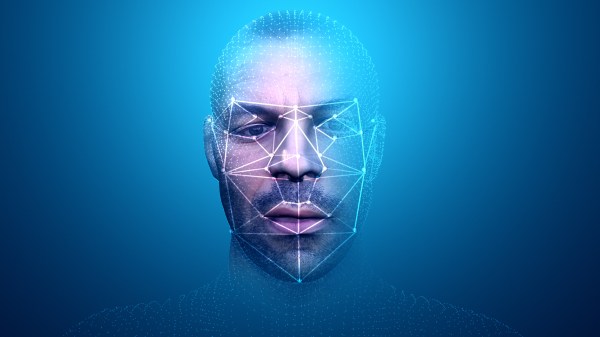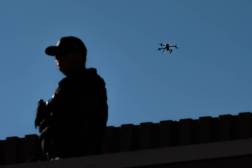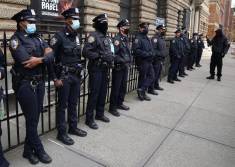Petition calls for ‘Mike Brown Law,’ requiring all police to wear cameras

A petition to require all state, county and local police officers to wear a camera will receive an official response from the White House after getting the more than 100,000 signatures on “We the People,” the Obama administration’s official petition site.
The petition was created following the recent events in Ferguson, Missouri, where a police officer shot and killed African-American teenager Mike Brown in a tragedy that has spurred passionate protests regarding civil liberties and race relations in the country.
Called the Mike Brown Law, the petition wants funds set aside that require police to wear a camera to “detour (sic) police misconduct,” and remove any doubt “from normally questionable police encounters.”
The petition was created on Aug. 13, days after Brown was shot and killed, and needed to get 100,000 signatures within 30 days to get an official White House response. As of Monday afternoon, the petition had received more than 112,000.
While its impossible to know the exact number, there are a large number of police departments across the country that already use the technology. Called “body cams” or “cop cams,” the cameras are roughly the size of a pager and clips on to an officer’s uniform or are worn on a headset. The cameras record audio and video of an officer’s interaction with the public that can be used to give an additional account of an incident.
There have been cases where the cameras have shown to be effective. In Rialto, California, the police force implemented them, and in the first year after their introduction, the use of force by officers dropped 60 percent, while citizen complaints against police fell 88 percent, according to the Associated Press.
“When you put a camera on a police officer, they tend to behave a little better, follow the rules a little better,” William Farrar, the Rialto police chief, told the New York Times. “And if a citizen knows the officer is wearing a camera, chances are the citizen will behave a little better.”
The American Civil Liberties Union, which has been aiding protestors in Ferguson, has voiced its opinion on cameras for police officers numerous times, weighing the balance between being used to keep officers accountable with their ability to be misused.
In a nutshell, while the ACLU is against government surveillance, the organization sees a benefit in police officers wearing cameras if there are rules and regulation in place to protect privacy as well.
The organization wrote this past October:
“For the ACLU, the challenge of on-officer cameras is the tension between their potential to invade privacy and their strong benefit in promoting police accountability. Overall, we think they can be a win-win—but only if they are deployed within a framework of strong policies to ensure they protect the public without becoming yet another system for routine surveillance of the public, and maintain public confidence in the integrity of those privacy protections. Without such a framework, their accountability benefits would not exceed their privacy risks.”
There is also a cost consideration that must be taken into account, both in the acquisition and maintenance of the cameras along with keeping the massive amounts of data they consume.
Two primary competitors dominate the market. Vievu and Taser make cameras that can cost police department between $300 and $400 per unit, but that number tends to aim toward the low end.
Both companies offer a cloud-based storage system for a monthly subscription fee instead of having the police departments and the local information technology departments that support them come up with a solution of their own.
That is, of course, if the jurisdictions are comfortable essentially outsourcing what would be evidence in a trial. Based on the sensitive nature of the information, plus the high likelihood that some of those caught on camera may be innocent bystanders and feel their right to privacy is being violated.
The White House will now respond to the petition based on the rules it set for itself when it created “We the People” more than two years ago.






